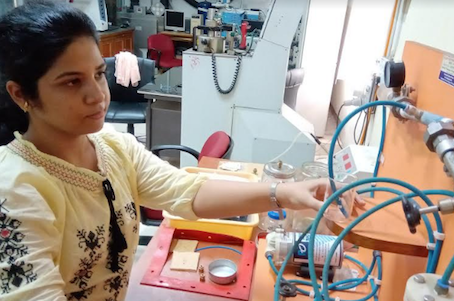Inside BENEO’s new pulse plant: pioneering sustainable protein from faba beans
The process technology involves ultra-filtering and ozonization of the freshly extracted microfiltered juice followed by packaging under an aseptic environment
Research scholar Chirasmita Panigrahi from the Dept. of Agricultural & Food Engineering, at the Indian Institute of Technology Kharagpur (IIT- Kgp), as part of her PhD research, has been pursuing a novel study on ozone-assisted cold sterilization technology towards the shelf stabilization of sugarcane juice without heat or chemical.
The process technology involves ultra-filtering and ozonization of the freshly extracted microfiltered juice followed by packaging under an aseptic environment.
The combined membrane filtration and ozone treatment technology resulted in 7 log reduction in bacteria, 5 log reduction in yeasts & moulds and 85% inactivation of enzyme polyphenol oxidase.
“This could minimize the juice fermentation and brown to a greater extent during storage. The combined technology treated juice could be successfully stored up to 12 weeks under refrigeration without any appreciable change in its bioactive and essential nutrients. The treated juice well retained its sensory characteristics especially the colour and flavour during storage,” confirmed Chirasmita.
Sugarcane juice is a refreshing drink with an enriched nutritional profile. However, the colour and flavour unique to the juice get deteriorated immediately after its extraction due to biological processes of browning and microbial fermentation.
Its short shelf life limits its long-term storage and marketing. Thermal treatments used to enhance the shelf life of sugarcane juice destroy its pleasant taste and aroma. Non-thermal methods hold promise in this regard.

